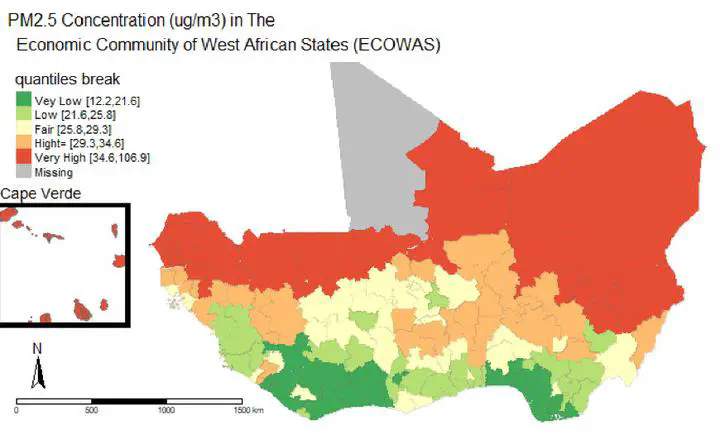Economic Growth and Environmental Quality - The Case of West African Countries (ECOWAS)

With the two oil crises of 1973 and 1979 and the Meadows report (1972) by the Club of Rome’s, the issues of natural resource management and environmental preservation began to be integrated by each state in their development process. Indeed, the effects of pollution are numerous, both on health and on the climate. According to the WHO, air pollution is the main environmental risk to health in the world. Thus, exposure to outdoor air pollution leads to the death of approximately 4.2 million people worldwide each year. Since 2013, outdoor air particles are classified as carcinogenic to humans by the International Agency for Research on Cancer (IARC). The toxicity of these particles comes from both their composition and their size. For example, in the long term it is estimated that particulate matter (PM) could result in the development of cancers (lung, bladder), cardiovascular and respiratory diseases, neurodevelopment of children, diabetes. Similarly, carbon dioxide (CO2) is considered the primary factor in global warming. Indeed, the impact of CO2 and methane on climate change are well known: they absorb solar radiation, reinforcing the greenhouse effect, hence the name greenhouse gases (GHG). For example, a motor car emits CO2, lead, benzene, particulates and nitrogen oxides. These products are toxic and harmful to our health, but also to the environment.
Therefore, numerous policies have been put in place at both national and international levels in order to take into account the environmental factor in development guidelines. Today, we talk about green growth or green economy. Since the environment and more generally the environmental quality is classified as a public good, all countries of the world are concerned by these issues. West African countries, which are for the most part considered developing countries, are even more concerned because studies have shown the existence of a relationship between development and environmental pollution. Indeed, one might think that economic growth will necessarily require more energy and materials, which will lead to ever higher levels of environmental degradation. Another view would be that economic growth can improve environmental quality through technological change and economies of scale in reducing pollution, changes in the composition of production, and increasing demand for environmental quality. Therefore, it is important for developing countries, particularly West African countries, to improve this relationship in order to adjust their policies to ensure sustainable development.
In this study, we are interested in studying the relationship between economic development, as measured by night time light, and environmental pollution, as measured by various indicators, in West African countries, taking into account the spatial dimension.
This work was conducted in collaboration with Bachir SABO and was performed using Python and R as the statistical tool. You can find 👉 here the replication codes of this study.